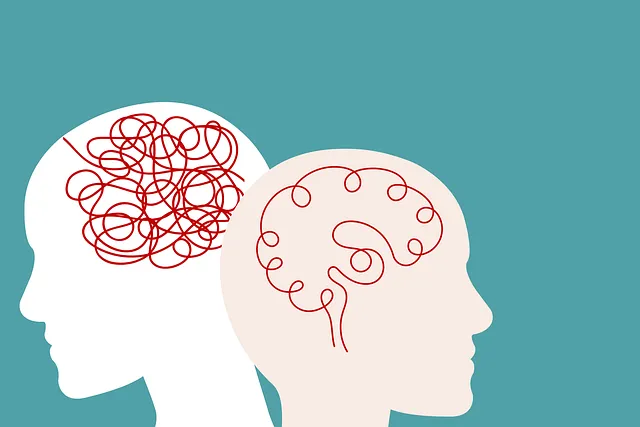Aurora Kaiser Permanente prioritizes cultural competency in mental health services, offering specialized training to healthcare professionals. This approach respects diverse cultures and beliefs, incorporates traditional practices, and creates inclusive environments for emotional healing. Through workshops, simulations, and case studies, the organization equips providers with skills to navigate complex cultural scenarios, ensuring effective treatment tailored to each patient's needs. Continuous improvement strategies, measured through patient satisfaction and diversity metrics, aim to revolutionize inclusive care, fostering community well-being and addressing mental health challenges.
“Cultural competency in healthcare, particularly within mental health services, is a critical aspect of delivering effective and equitable care. This article explores the significance of cultural sensitivity and its impact on patient outcomes, using the Aurora Kaiser Permanente (AKP) model as a case study. We delve into AKP’s comprehensive training programs, examining their success in fostering inclusive practices during mental health appointments. Furthermore, essential components of cultural competency training are highlighted, along with strategies for continuous improvement.”
- Understanding Cultural Competency in Healthcare: Why It Matters for Mental Health Services
- The Aurora Kaiser Permanente Approach: Training Programs and Their Impact
- Essential Components of Effective Cultural Competency Training for Healthcare Providers
- Promoting Inclusive Care: Measuring Success and Continuous Improvement Strategies
Understanding Cultural Competency in Healthcare: Why It Matters for Mental Health Services

In the healthcare sector, cultural competency goes beyond simple awareness; it’s about embracing diversity and understanding how cultural backgrounds shape health experiences and behaviors. This is particularly significant in mental health services, where Aurora Kaiser Permanente has recognized the need for specialized training. Cultural competence ensures that mental health professionals can provide tailored care, acknowledging the unique needs of diverse patient populations.
For instance, a simple mental health appointment at Aurora Kaiser Permanente might involve more than just therapy sessions. It could include recognizing and respecting a patient’s cultural practices, incorporating their traditions into therapeutic exercises, or offering guidance on journaling as a Mental Wellness Journaling Exercise to help patients explore and express their emotions. This holistic approach, rooted in cultural competency training, facilitates effective Emotional Healing Processes, fostering a safe and inclusive environment for all patients.
The Aurora Kaiser Permanente Approach: Training Programs and Their Impact

Aurora Kaiser Permanente has pioneered an innovative approach to cultural competency training within the healthcare sector. Their programs focus on fostering a deeper understanding and appreciation for diverse cultures, traditions, and beliefs among medical professionals, particularly in mental health care. The organization recognizes that effective treatment requires more than just clinical expertise; it demands empathy and sensitivity to patients’ backgrounds.
Through interactive workshops, simulations, and real-life case studies, these training programs equip healthcare providers with essential tools for navigating complex cultural landscapes during patient interactions. By participating in role-playing exercises, staff members enhance their communication skills, learning how to adapt their approach for diverse patient populations. This holistic development includes not only mental health awareness but also an emphasis on social skills training, ensuring a comprehensive understanding of the barriers and facilitators related to cultural competency in healthcare delivery.
Essential Components of Effective Cultural Competency Training for Healthcare Providers

Effective cultural competency training for healthcare providers involves several key components. Firstly, it should encompass a broad understanding of diverse cultures, including historical backgrounds, beliefs, and practices that may impact healthcare experiences and outcomes. This knowledge allows providers to create an inclusive environment, fostering trust and respect during patient interactions.
Additionally, training should focus on communication skills tailored to different cultural contexts. Role-playing scenarios based on common challenges faced by diverse communities in Aurora Kaiser Permanente mental health appointments can enhance empathy and adaptability. Encouraging open dialogue about racial biases and unconscious assumptions also contributes to more accurate diagnoses and personalized care plans, addressing the need for self-esteem improvement and strengthening community public awareness campaigns development.
Promoting Inclusive Care: Measuring Success and Continuous Improvement Strategies

Promoting inclusive care is a cornerstone of modern healthcare, especially within mental health services. Organizations like Aurora Kaiser Permanente recognize that successful treatment involves cultural sensitivity and empathy-building strategies. Measuring the success of these initiatives is key; tracking patient satisfaction rates, diversity in clinical staff, and outcomes specific to diverse populations can provide valuable insights.
Continuous improvement strategies should be implemented based on these metrics. Public awareness campaigns development focused on destigmatizing mental health issues and promoting cultural competency can further enhance inclusive care. By fostering an environment where all patients feel seen, heard, and respected, healthcare providers can ensure equitable access to quality mental health appointments (Aurora Kaiser Permanente mental health appointment number), ultimately improving community well-being.
Cultural competency training in healthcare, as demonstrated by the Aurora Kaiser Permanente approach, is a game-changer for providing inclusive care. The focus on understanding diverse cultural contexts, as seen in their comprehensive programs, significantly improves patient outcomes, especially in mental health services. By equipping healthcare providers with essential tools and knowledge, organizations like Aurora Kaiser Permanente enhance the overall quality of care. Continuous improvement strategies, including measuring success through key performance indicators, ensure that these training initiatives remain effective and relevant in a dynamic healthcare landscape. This structured approach can serve as a model for other healthcare systems to improve their cultural competency, ultimately fostering more equitable and accessible mental health services.






